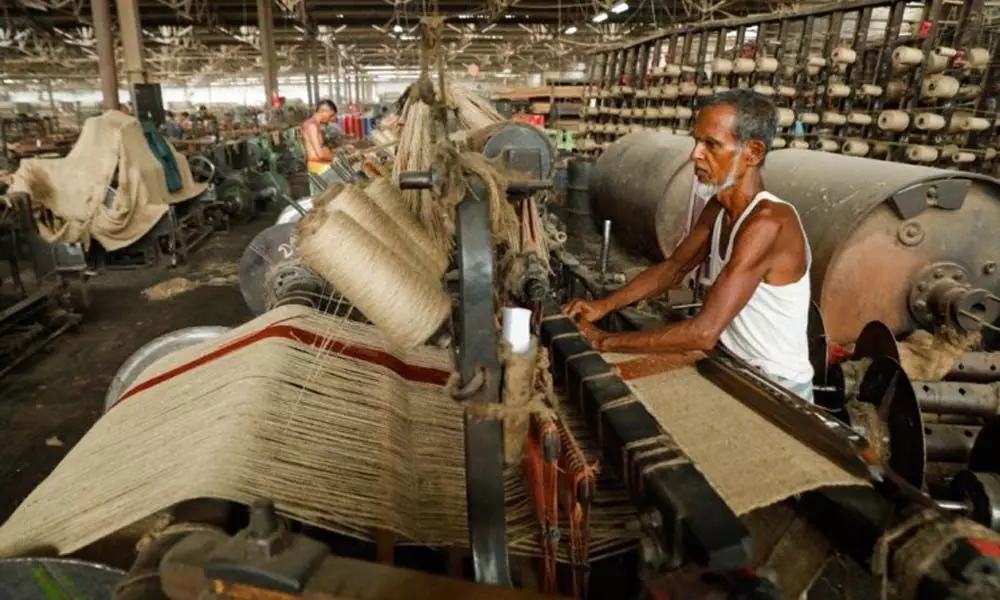Jute industry seeks govt support amid fear of allowing plastic bags to pack food grains
There are wide spread apprehensions among the country’s jute mill owners that the Centre might allow plastic bags to pack food grains and sugar for the Khariff season, starting from July itself.
image for illustrative purpose

There are wide spread apprehensions among the country's jute mill owners that the Centre might allow plastic bags to pack food grains and sugar for the Khariff season, starting from July itself. Normally, the Jute Packaging Material Act (JPMA) mandates packing all food grains and sugar produced in the country in jute bags. However, jute mills were not being able to meet the demand for jute bags, thanks to the cyclone-Amphan and the pandemic. And this, in turn, had prompted the Union textile ministry to allow the use of plastic bags in the previous Rabi season.
But things have changed since then and this time round, the jute industry is excepting a bumper crop and the industry is confident of meeting the demand as per the JPMA. There are still apprehensions that the Centre might continue to allow use of plastic bags to pack food grains and sugar.
Interestingly, production in the coming crop season is estimated to reach 90 lakh bales from around 55 lakh bales produced during the current crop season. The Centre has already fixed the MSP at Rs 4,500 a quintal for the coming crop season, up from Rs 4,225 a quintal in the current season. Significantly, market prices are expected to fall below MSP at the farm gate since jute acreage in West Bengal, the largest jute growing state, has increased by one lakh hectare to 6.5 lakh hectare, with high crop prices luring farmers to cultivate jute this year. Therefore, prices are unlikely be remunerative for jute cultivators in the coming crop season (July-June), even as the average price of raw jute hovering around Rs 8,500 a quintal at the end of the current jute season.
The Indian Jute Mills Association (IJMA) has taken up the matter with the West Bengal chief minister Mamata Banerjee and sought her support of to safeguard the interests of the industry and farmers, amidst such fears.
Suspecting that the synthetic lobby might mount pressures on the Centre to scrap the JPMA, IJMA sent an SOS, of the sort, to the Bengal chief minister, urging her to intervene so that Bengal's jute mills receive 100 per cent jute bag supply orders in 2021-22 for packing food grain and sugar and JPMA 1987 is continued in its original shape.
Mind you that a shortfall in production has led to closure of 17 jute mills since April. And significantly, the fate of the 60-odd jute mills in Bengal, which employ 3 lakh people directly and 40 lakh people indirectly, including jute farmers, for all practical purposes, depends on the JPMA.
Nearly 17 lakh tonnes of raw jute are expected to be produced this year. On an average, the entire demand for bags can be fulfilled by 15 lakh tonnes of raw jute. Hence, the industry can meet the demand (for bags), IJMA feels. Not only that. With the possibility of a bumper crop, mill owners believe that the shortfall of 7 lakh bales in the previous crop season will also be recovered this time.There are wide spread apprehensions among the country's jute mill owners that the Centre might allow plastic bags to pack food grains and sugar for the Khariff season, starting from July itself.

